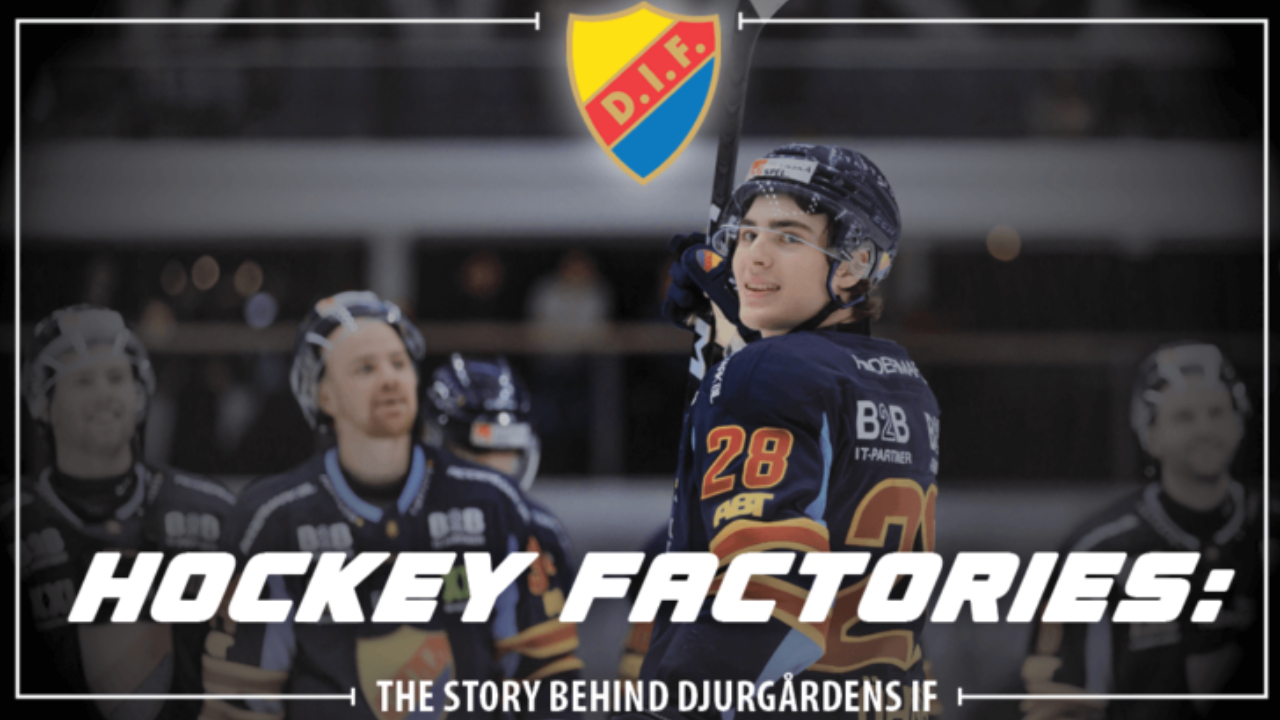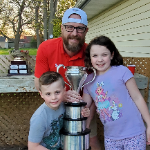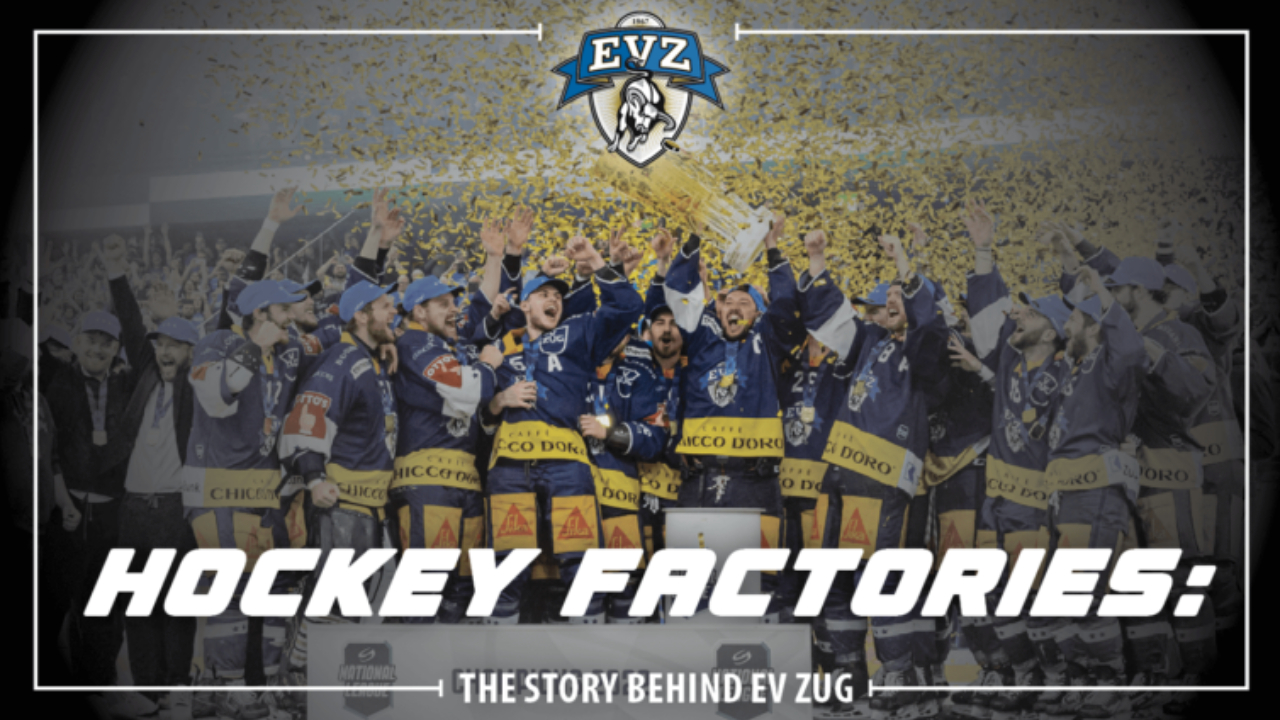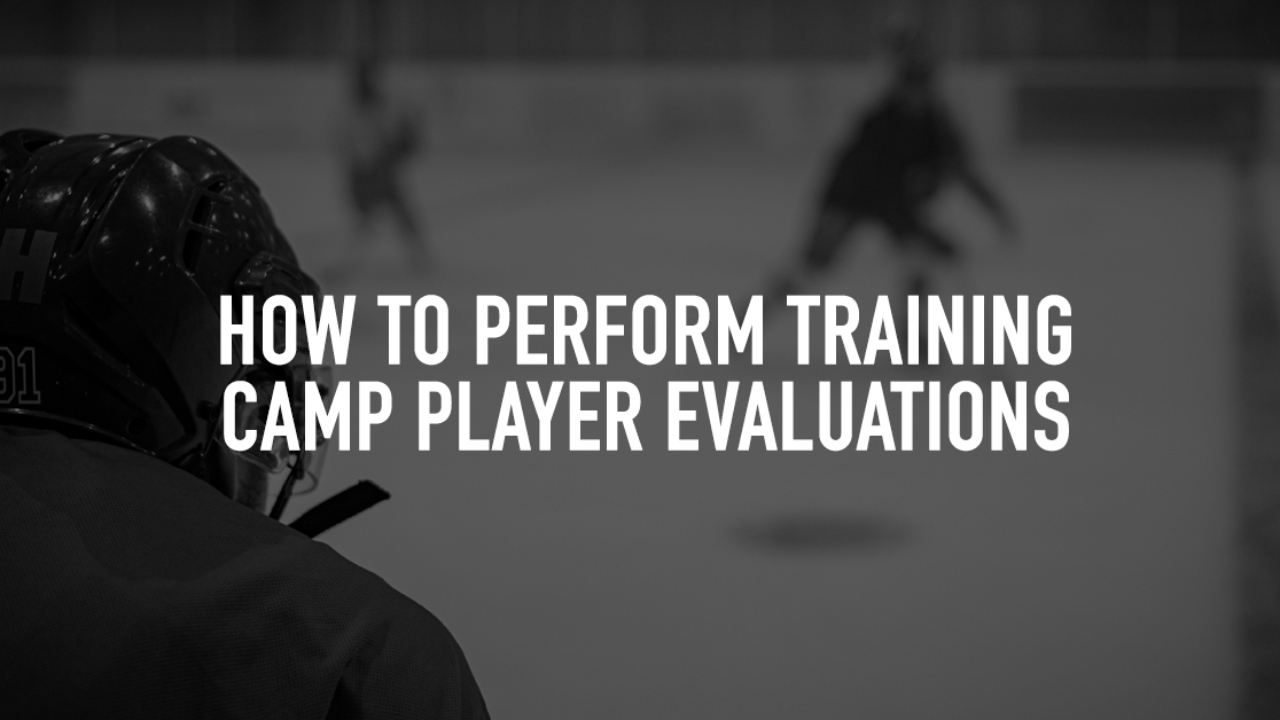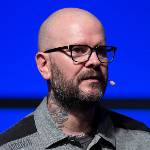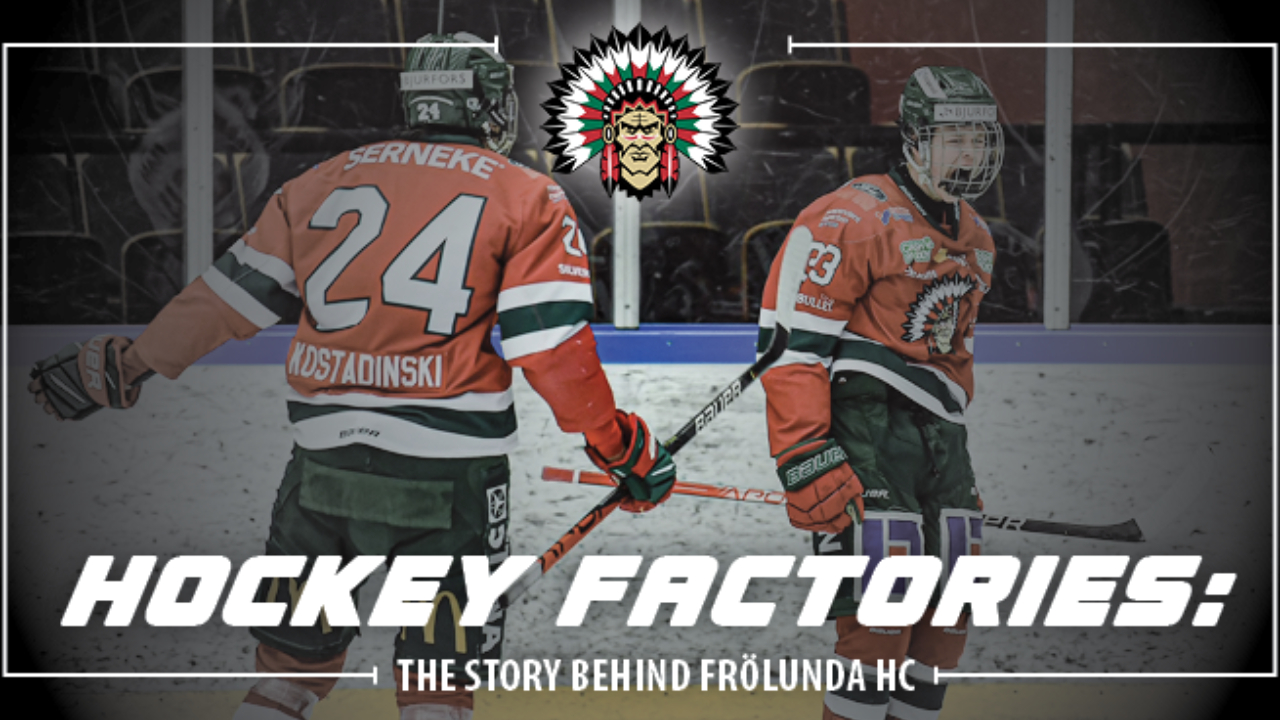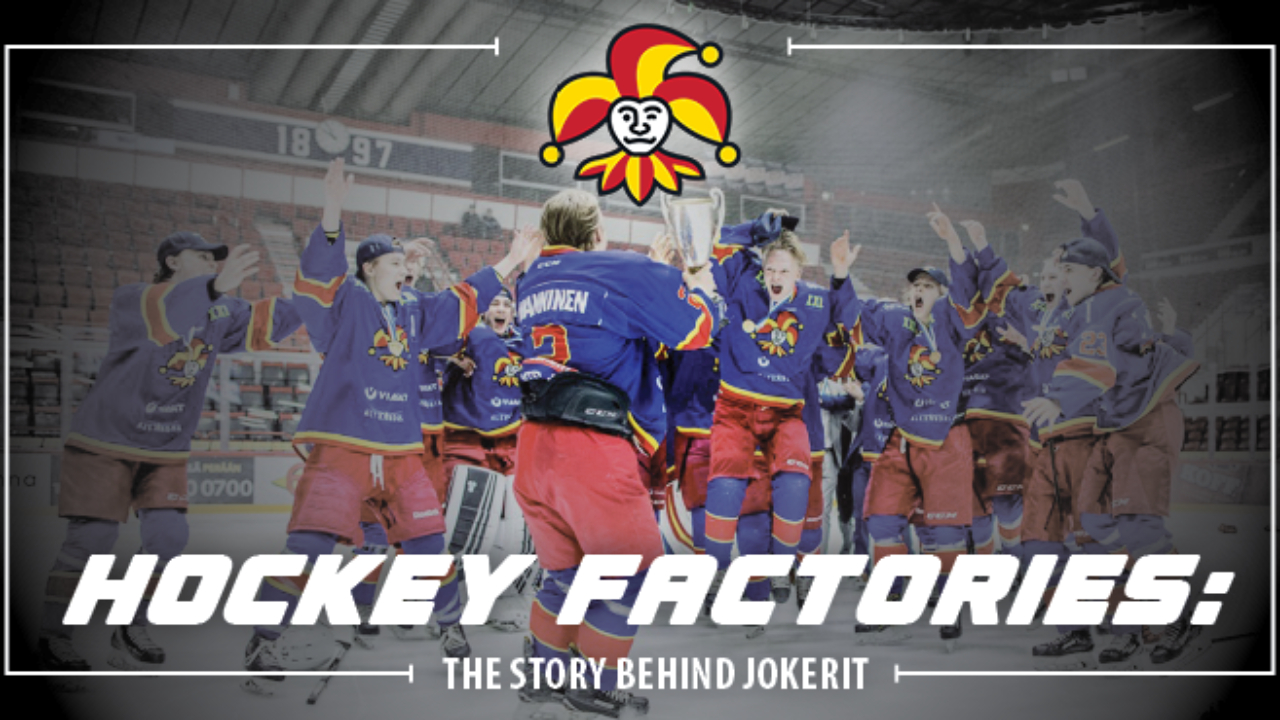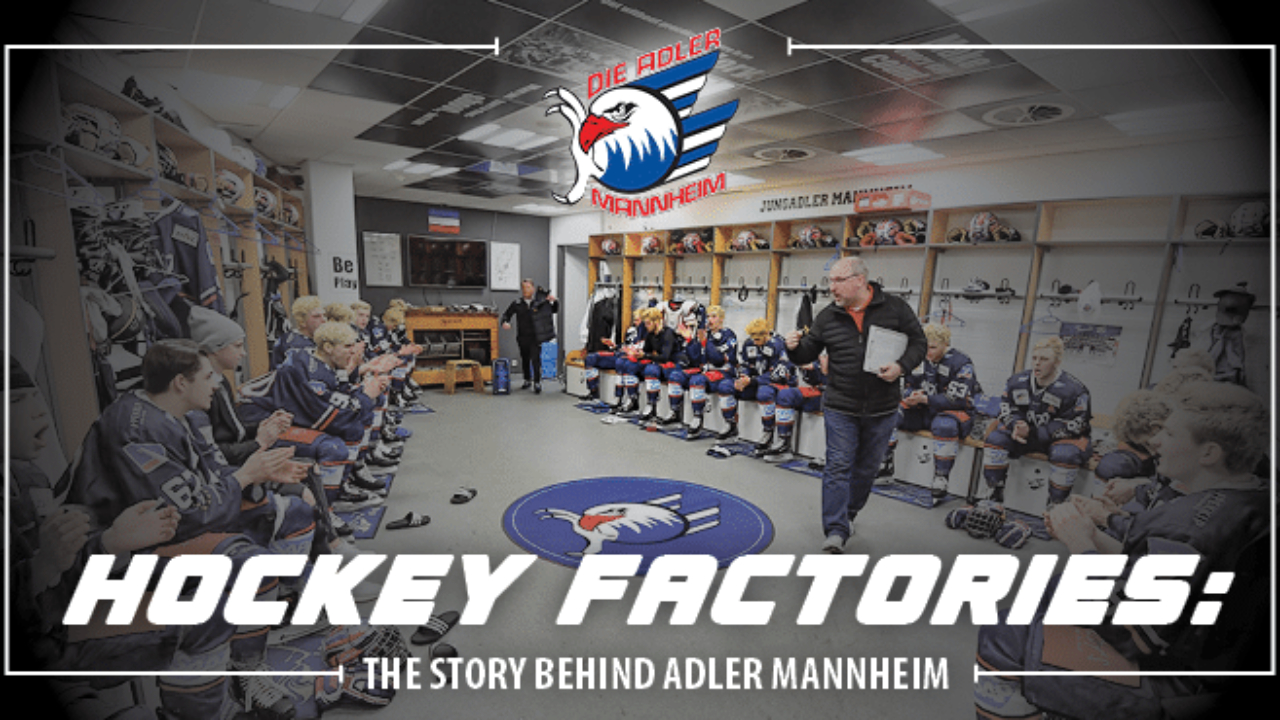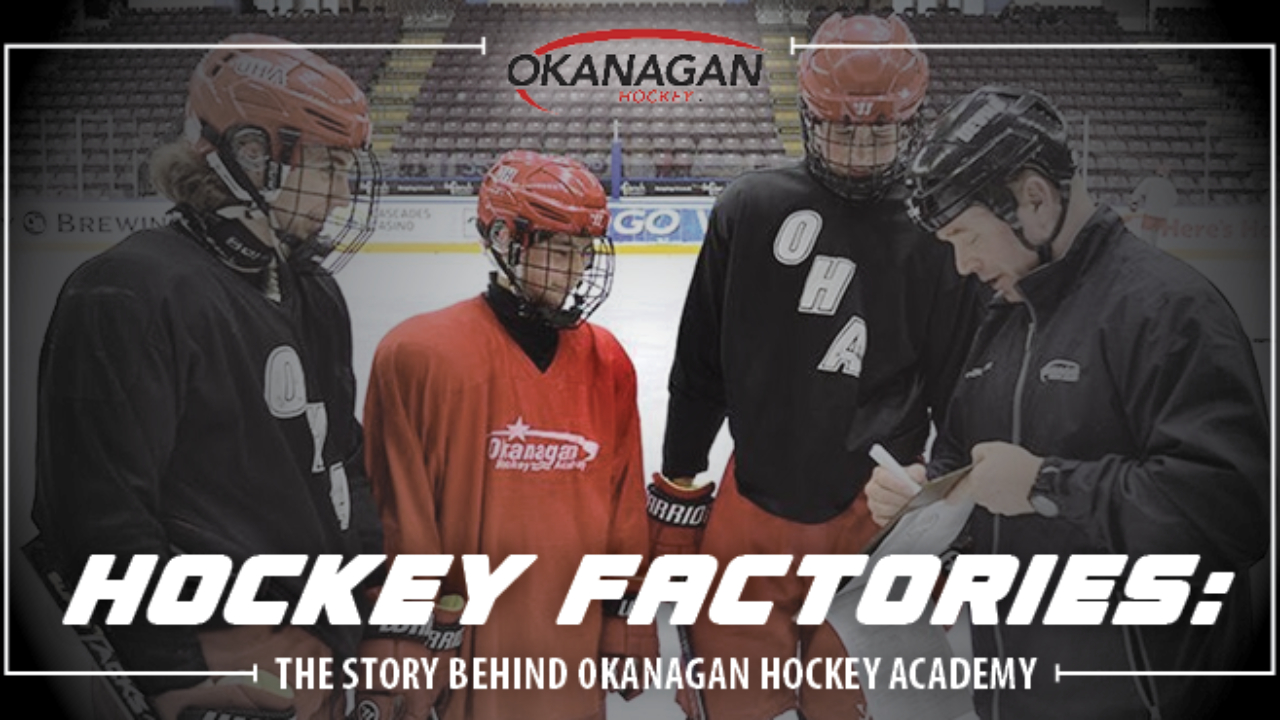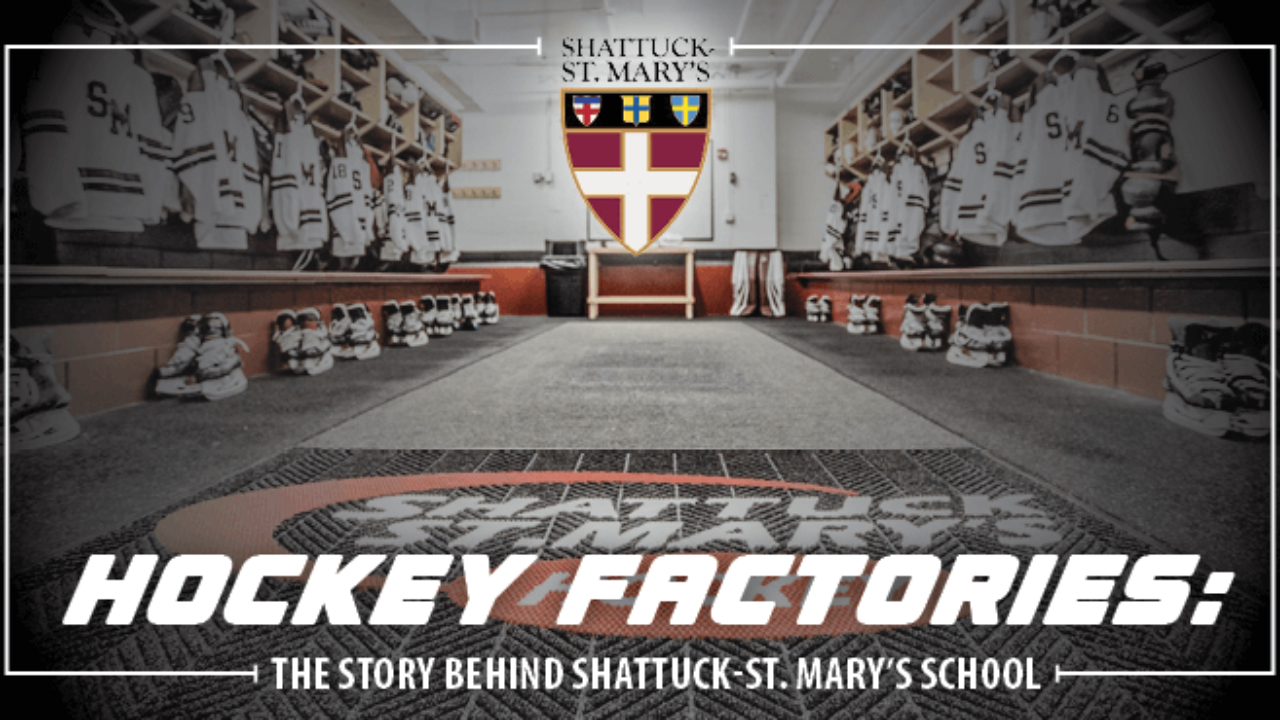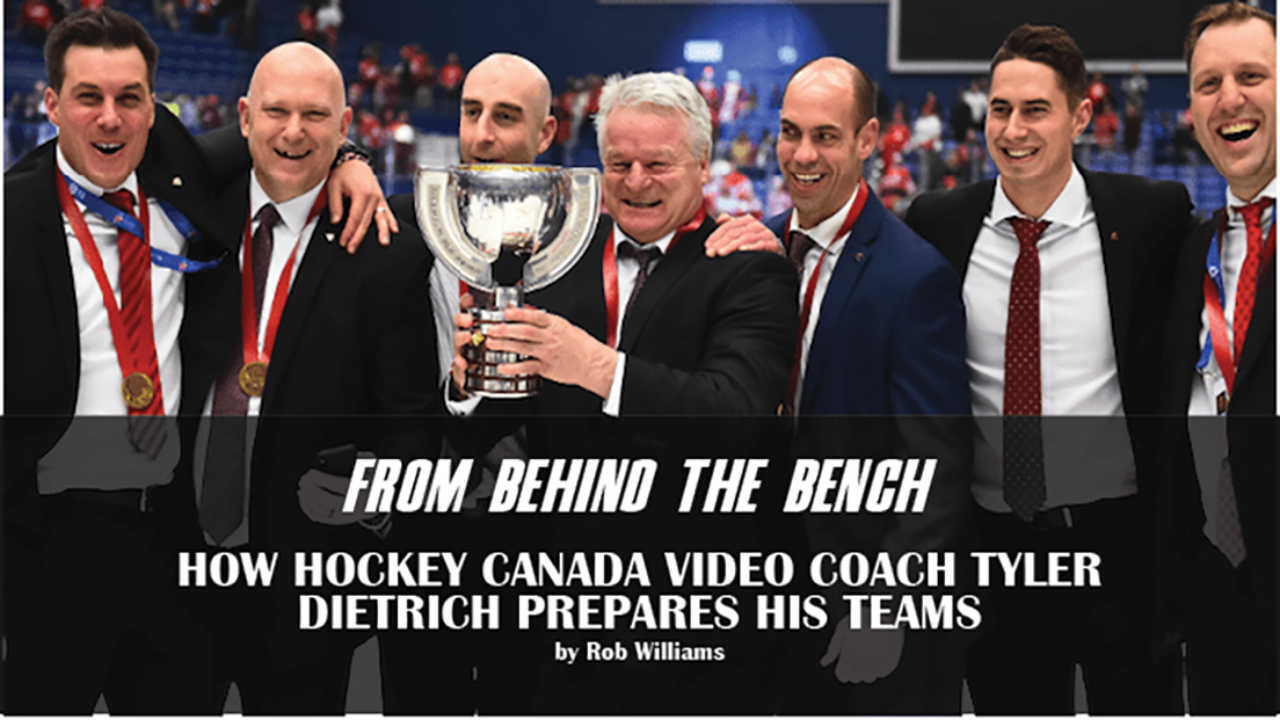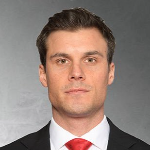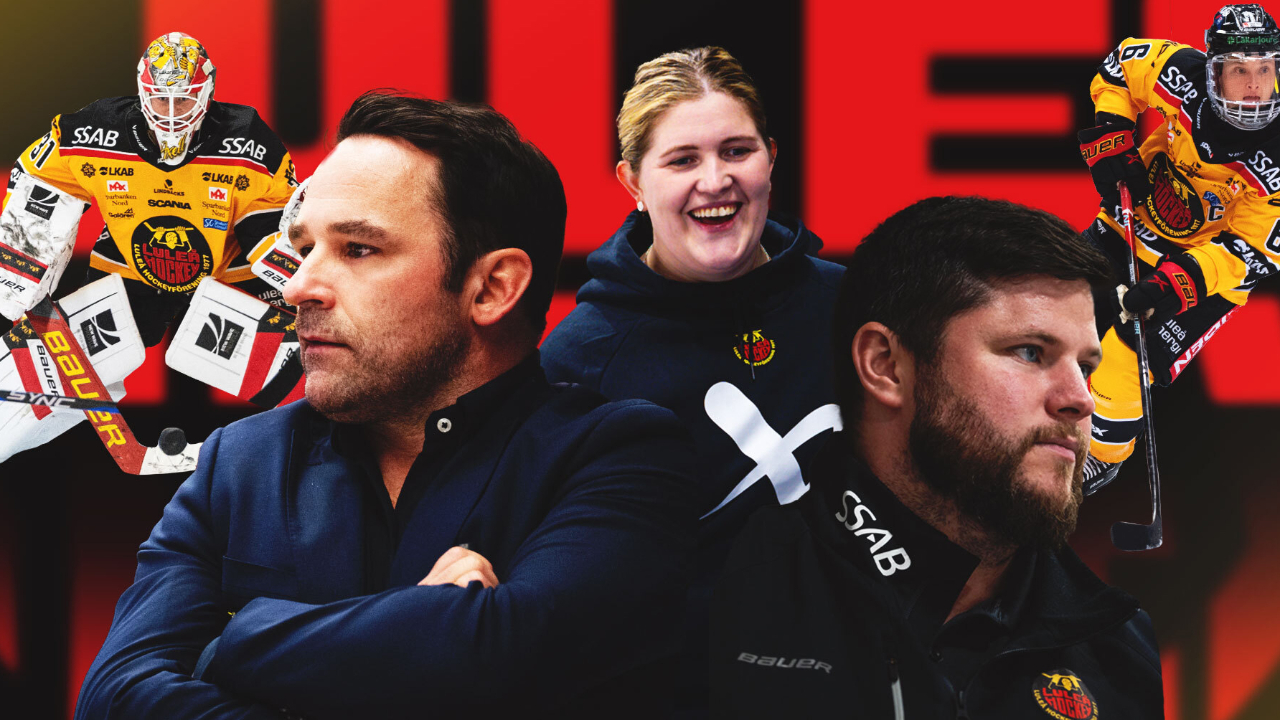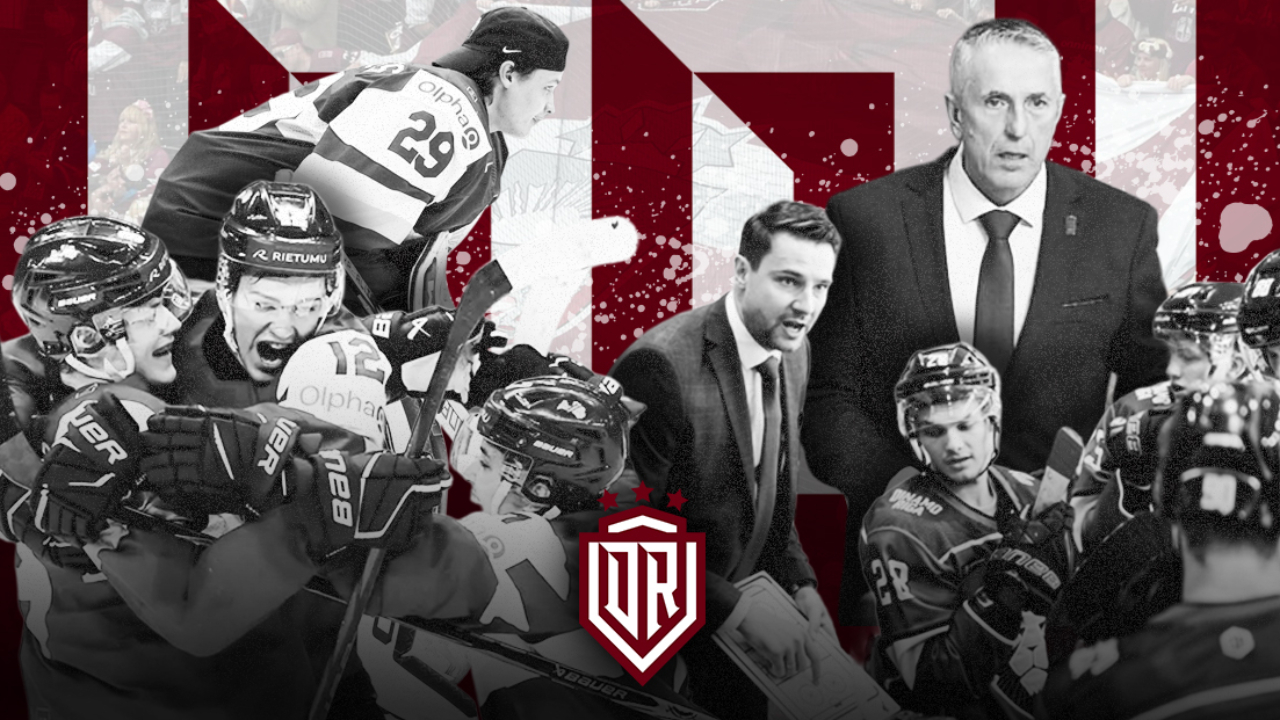
Who doesn’t love a Cinderella story?
Most of us fill March Madness brackets every year fixating on what little school in the United States that is ranked in double digits in their section will run the table and upset the giants.
We all love the dark horse, the underdog, the ones that don’t appear to belong but, hey, you never know, it only has to happen once.
The Cinderella syndrome that some teams fall into is the one that they are just excited to be invited to the dance, even if that means they don’t actually make it to the floor.
You can only imagine that was the case at the Canadian Tire Centre in Ottawa, Ontario on Friday, December 27th, 2024.
The World Junior Hockey Championships had started the day before, and host Canada had posted a comfortable 4-0 win against the eventual silver medalist team from Finland.
Their next game was one most Canadians assume is just going through the motions, with eyes on the New Year's Eve matchup with the United States coming up.
Their opponent was Latvia.
A while ago, it’s possible the Latvian players were walking into this game with the same thought process.
Until a former NHL head coach stepped into the country, Latvian hockey was “happy to be there”.
To him, that wasn’t good enough.
To a country, that became the standard.
================================
Riga, Latvia is as picturesque a European city as you will find.
Founded in 1201, the city hosts 1.9 million foreign visitors every year, but has a population of 621,000 residents.
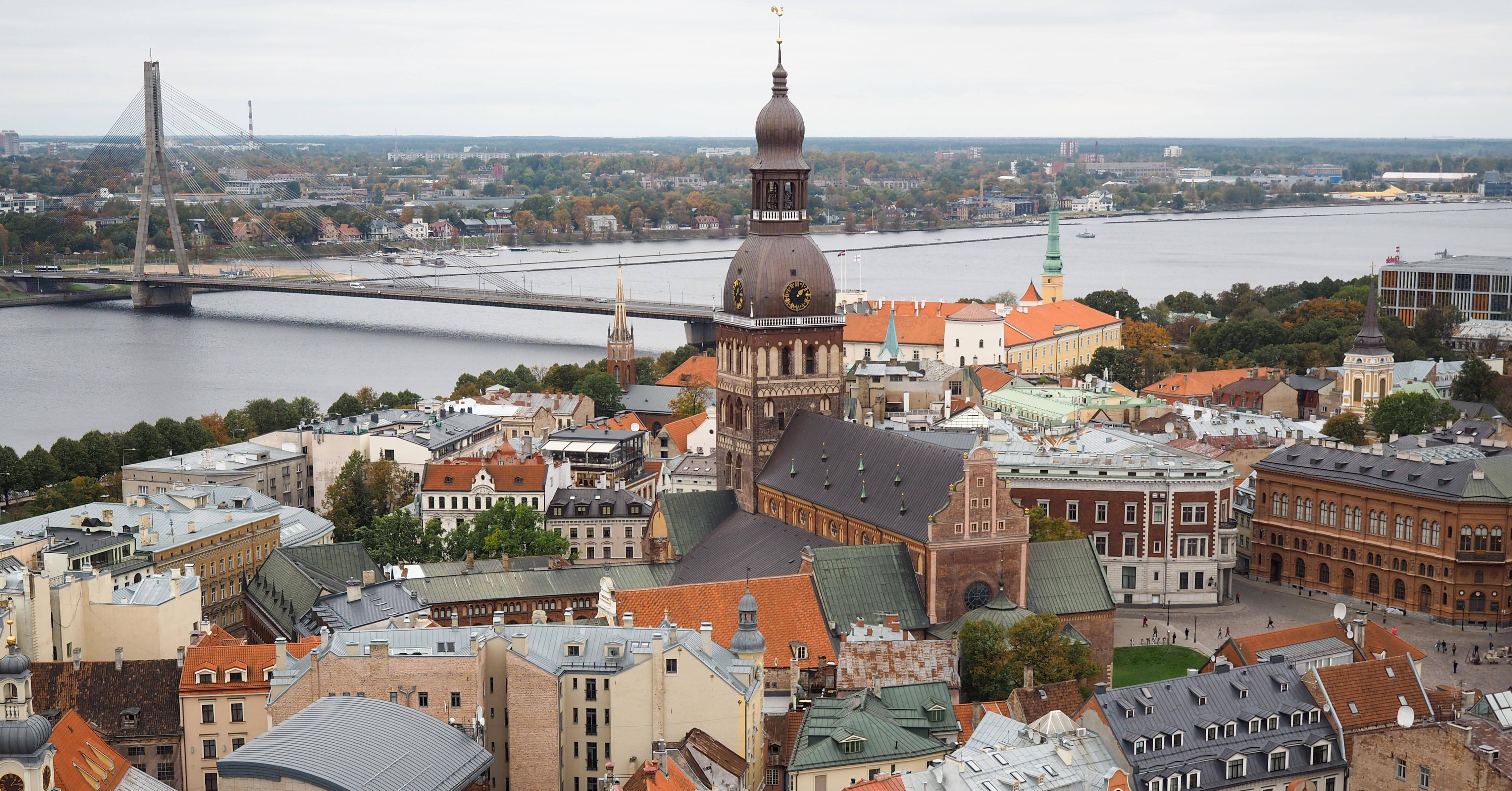
The capital city of Latvia represents one third of the population of the country, which boasts 1.8 million citizens according to a 2023 census.
To put that in perspective, the country of Latvia would be the third largest city in Canada and the fifth biggest city in the United States.
HS Riga (aka Hockey School Riga) was founded in 1999 and is overseen by the Riga City Council.
It was created as an opportunity for local players to mix school and hockey, instead of them feeling like they had to leave their home and country to find the competition and development they needed to make a career out of the game.
With the support of the city, it also makes it a more affordable option for families looking for private hockey education.
They carry teams in the Junior Development Hockey League and the Optibet Hockey League, along with the Latvian Hockey Higher League, which is the top league in the country.
The schedule is similar to what you see with most academies these days.
“I’m normally at school by 8 am until 2:30 pm and then I’ll go to training," current HS Riga U15 player, Alberta Purins explains. "We normally have three hours in between so we’ll go home, eat, maybe get a nap and then by 7:00 pm we are training and on the ice. Then go home and do it again. It’s a great way to get both worlds together, but not all at once.”
I asked him how he likes that kind of schedule, thinking it would be a lot for anyone that age.
His answer is probably pretty familiar.
“I really like it,” Purins admits. “School not as much, but hockey every day? Absolutely!”
The school mandate plays a role in developing players well before they can actually attend, with skating schools and then do a school-like system with Grade 1, 2, 3 until they get to U15 where there’s more of a special class and there are tryouts and the work starts to prepare players for their hockey lives.
For a country as small as Latvia, they need all the skaters they can find.
“We want to give everyone a chance. Every kid has to play. Everyone is into it,” explains Raimonds Vilkoits, HS Riga’s U17 Head Coach and Team Latvia Assistant Coach. “Our philosophy is that everyone needs to play, everyone has to touch the puck. It’s a similar to the standard European model.”
Purins was signed up at Riga when he was around 3-years-old.
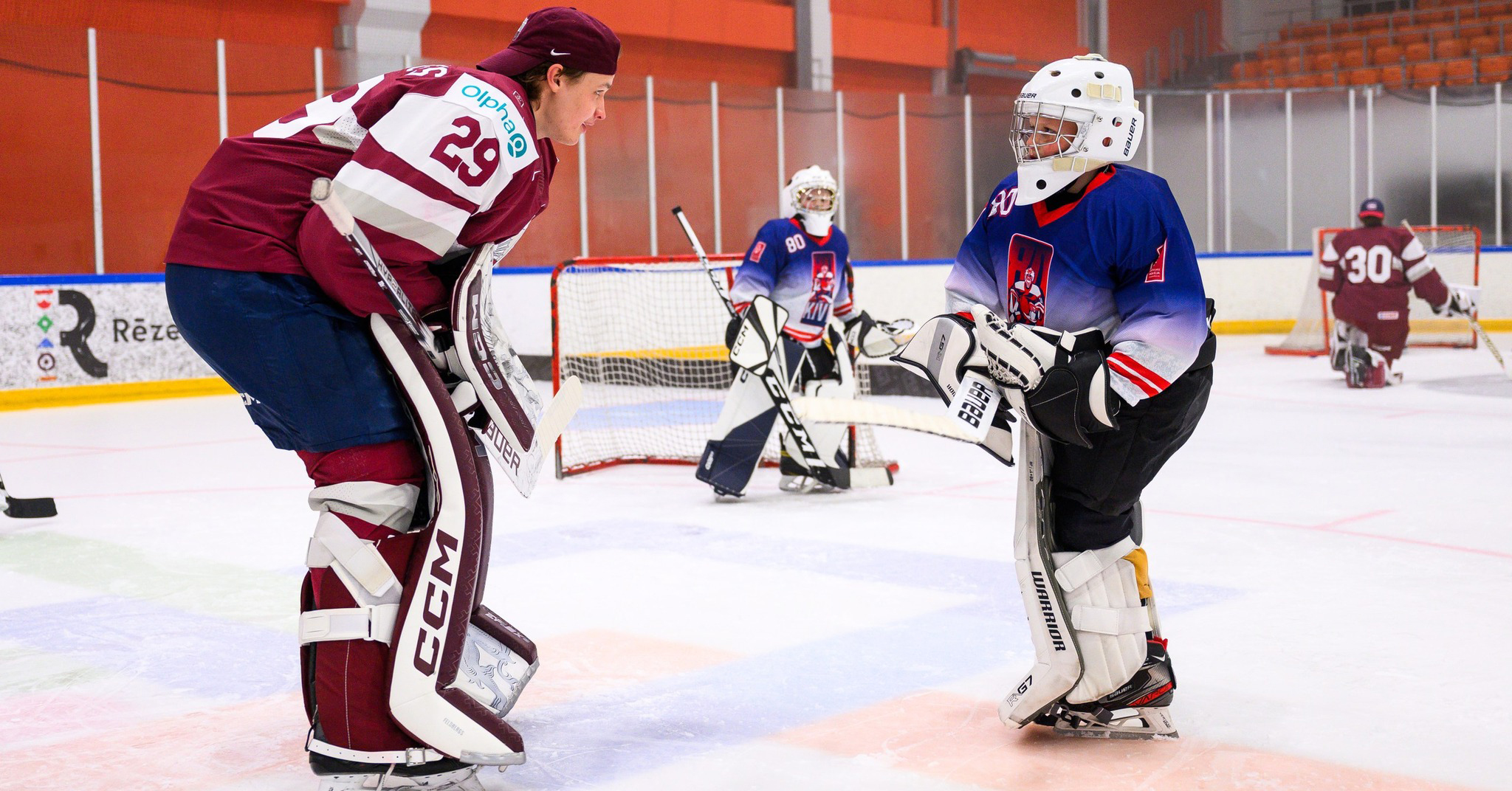
Kristers Obuks, who plays at HS Riga’s U17 team came to HS Riga when he was around 7-years-old after playing at another club.
“We have a lot of great coaches for each year I’ve been there,” Obuks claims. “As we were getting older, the coaches were slow with teaching the game, they were finding ways to make it interesting and focus on just enjoying the game at the start.”
It’s also a challenge for the program to find competition, so the U15s play in the U17 championships and then the Finnish championships and the U18s play in the top Men’s league in the country.
But getting to play older age groups early on is something Oleg Sorokins, U18 Head Coach, believes is an advantage down the road for their players.
“You have to be ready to play for older groups and it also depends on how good the older group is,” Sorokins says. “The higher level is also a great evaluator. You get a chance to see skill level and physical level what kids are able to play with older players and which ones are not ready yet.”
Vilkoits agrees.
“We challenge the players to be their best at every game. In our hockey school, there is no game you can just show up and see what happens,” he declares. “The players will grow into it strength and conditioning-wise as they play older players, but the idea is to be challenged all the time and be prepared all the time as much as we can.”
“We are small, that’s the thing,” Riga coach Juris Ozols admits. “We can compete with the tactics with Canada, but we can't compete with the skill level because of the volume. Not everyone is drawn to hockey in Latvia and even if they are, he may be picking a different sport because hockey is expensive. It's not that easy.”
HS Riga was looking for an advantage.
Latvia, as a whole, needed someone to show them the way.
================================
On May 3rd, 2016, the Calgary Flames made a coaching change.
One season after winning the Jack Adams Trophy for the NHL’s best coach, the team decided to move on from Bob Hartley, after a 134–135–25 record and one playoff appearance over his four seasons in Calgary.
That winter Hartley got a phone call from the general manager of the Latvia National Team, who said he were interested in meeting him.
The World Juniors were being held in Toronto that year, so Hartley travelled from his Florida home to meet with the staff, exchange ideas and get to know each other.
That meeting very well could have changed the course of Latvian hockey forever.
Hartley was offered the job as Head Coach and got to Latvia a few months before the World Championships for training camp and to also travel around the country promoting hockey, talking about the relationship between parents, kids and coaches and to help make sure everyone was blended together.
Development has always been at his core.
The Bob Hartley High Intensity Hockey Camp still runs in York, Pennsylvania – a camp he has run for the last 28 years, with its next sessions coming up in July.
But this was a new chapter for Hartley, who had coached Junior A, major junior, AHL, NHL and now had a chance to represent a country in the World Championships – something he admitted he didn’t pay much attention to before.
The response from his promotional tour, he says, was tremendous.
“Lots of times it’s not about country, it’s about culture,” Hartley shares. “Life is about culture, business is about culture. I got there and I was amazed by the quality of the human beings – players, staff and fans – and the passion they have for the game of hockey in unbelievable.”
Another thing stood out to him, even going back to the first meeting he had with the club at the World Juniors.
“Right away, I sensed they felt they were already down two goals before the puck even dropped,” Hartley acknowledges. “Playing against Canada, the USA, Russia, Sweden, they felt like they had no chance. It was like they were just happy to participate. Of course, they were happy to represent their country, but the belief of competing wasn’t there.”
Not only did Hartley realize he had to instill a new structure and detail and concept with how his team played, he had to work on their mindsets first.
“They were proud, they wanted to do well, but the belief was iffy,” Hartley remembers. “When I got to the big team and was talking to the coaches around me, it was ‘yeah, we are lucky to be in those tournaments’ and I was very much of the mindset of ‘never mind being lucky, let’s play these guys’.”
One of his stops was at HS Riga.
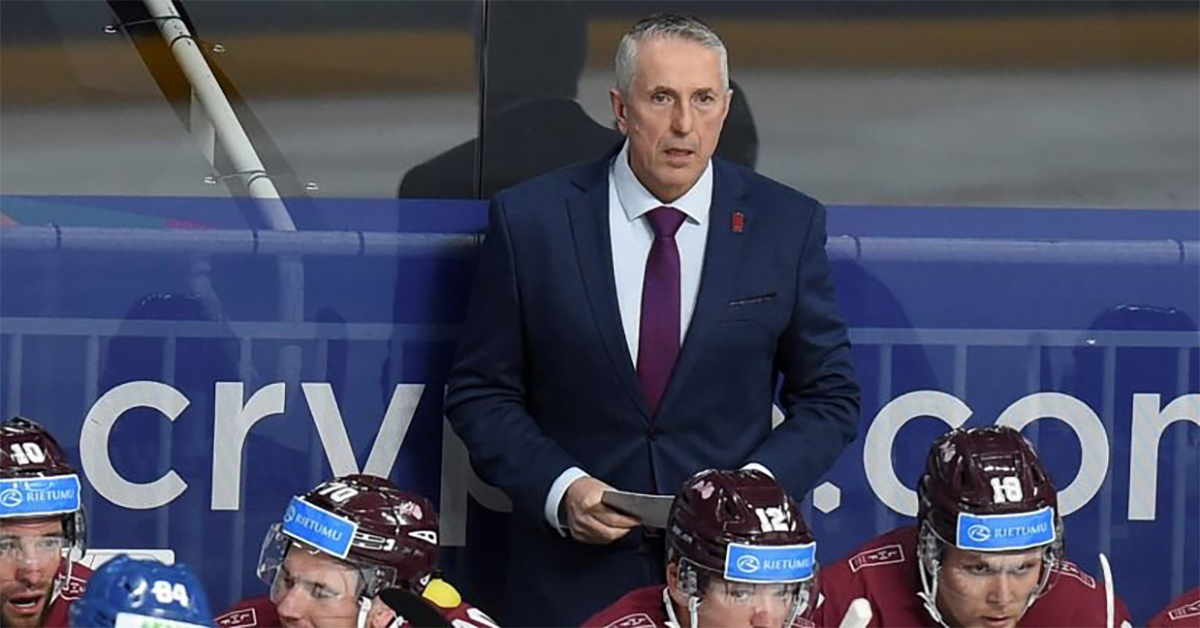
“There is such a passion for teaching there, I’d go out on the ice with the coaches and kids and it was always impressive how professional and organized they were,” Hartley states. “We know hockey is expensive and academies can be too, so if you are going to invest your family’s money, HS Riga has a commitment and tradition of excellence. They want to do it the right way.”
The time Hartley spent at Riga was impactful from the coaches perspective as well, with Vilkoits going as far as saying it completely changed him.
“I was a young coach at the time so there was so much to take in,” Vilkoits recalls. “Everything from stick details to the culture of playing. I was working with the U20 National Team so the things I learned in that seminar I got to use right away. I kind of knew the positions, but what Bob did was teach us the ‘why’.”
Vilkoits uses sentences like ‘we looked at hockey differently’ and ‘it was one of the big turning points for us’ when he references his time seeing Hartley in action.
It also went a long was for the younger players to see the older players go toe-to-toe with the ‘big boys’ of hockey.
“It’s easy to say we don’t have a Connor McDavid or a Nathan McKinnon or a Johnny Gaudreau,” Hartley would preach. “When I got there I would say to our players ‘once we get on the ice and in the faceoff circle, they have the same number of players on the bench and the same amount of guys on the ice, so make sure you don’t get outworked by the one beside you. If you’re the left winger, look at the right winger and say to yourself ‘there’s no way this guy is going to outwork me’.”
The shift began to happen.
They just missed the quarterfinals at the 2017 World Championships, losing out to Germany in a shootout for the spot.
The mental side played a huge part in not just their game preparation, but also their strategy.
Hartley explains how the team used to line five guys on the blueline and play a very passive game with the thinking that losing 6-0 is better than getting beat 11-5 because you were more aggressive.
“You can have the best details, the best systems, all of that – but if you don’t believe or play in awe of your opponent, you don’t stand a chance,” Hartley preached. “You can’t start the game and mentally already be down, it doesn’t work. The belief is to get in those battles and those games and appreciate the moment. I would tell our guys ‘don’t watch them, compete against them’.”
It took some time but when it clicked and the National Team started to buy-in, there were no longer ‘big boys,’ in fact, they wanted to play those teams, looking forward to lining up against McDavid, Draisaitl and company.
“We got rid of the moral victory. It was win or lose. We were not just sitting back and trying to defend. I spent lots of time changing that DNA,” Hartley says. “Latvians are very competitive, it was inside of them. We just had to find a way to get it out.”
Hartley used that advice in the future as well with the Head Coach of the Swiss team in the 2018 World Juniors.
Remember Christian Wohlwend?
Before the game, when asked what kind of game he was expecting he said, ‘A Canada team who dominates us again. They’re faster, they’re bigger, they’re stronger, they can shoot better, they can pass better, they can do everything better.’
Wohlwend was with Hartley in Zurich in 2011 as a young coach for about a month following him and in the playoffs he was hired by Hartley to pre-scout other teams.
Hartley didn’t take to that comment lightly.
“He’s a pitbull and when he said that, the next day I called him and said ‘Don’t do this. You probably said the truth but your players are listening to you. Don’t make them feel like they don’t stand a chance.’ It reminded me of my start in Latvia where you want to turn those games into an opportunity for greatness.”
The trickle-down hit home for HS Riga’s Oleg Sorokins – a former Olympian in his own right.
“Not everybody is going to be a star. Even in the NHL, not everyone is going to be a star,” Sorokins tells. “They are looking for 3rd and 4th line players that make a difference so having some of those skills can even help you go all the way. You will always need players that work their asses off and I think that was one of the mindsets that Bob brought in.”
Hartley stayed four more years (one lost to the COVID-19 pandemic) before scheduling conflicts with his head coaching position at Omsk Avangard (KHL) became too much.
No doubt his influence was a major contributor to the 2023 World Championship bronze medal won by the country in 2023 – it’s first medal at the tournament – when they beat the United States in overtime.
“Our bronze medal was huge,” Vilkoits smiles as he reminisces. “You wouldn’t believe the welcome we got when our team got home, maybe 50,000 people near the Monument of Freedom. It just shows if everyone works together, something big can happen and it makes you believe in miracles.”
================================
After a scoreless 1st period, Canada scored three minutes into the 2nd, putting them up 1-0 against Latvia at the 2025 World Junior Championships.
It stayed that way until there were seven minutes left in the game.
Latvia scored.
Shock covered the crowd and the players on the Canada bench.
It was a game.
For all of 64 seconds the game was tied until Canada notched another marker, moving them 5 minutes and 38 seconds away from a victory that now seemed more like an exhale.
With 2 minutes and 29 seconds left, their breath stopped.
Latvia had scored again.
The game was going to overtime.
The extra frame solved nothing, so the game went to a shootout.
Incredibly, Canada and Latvia went into the 8th round of shooting, when Eriks Mateiko went blocker side and silenced the Canadian crowd.
Latvia had come back twice in the game and pulled off a win for the ages.
Mateiko had spent two seasons at HS Riga before going to the QMJL, Linards Feldsbergs, who made 55 saves in the game, had been at Riga as well.
The reactions back home were amazing.
“It was really great, all of Latvia was probably screaming in their home,” Purins remembers. “It had been a really long time since Latvia got a medal at the World Juniors, it was crazy. It was a hard working team and a real inspiration.”
“They did great work in not letting Canada play,” Ozols details. “On the surface it’s a win in the round robin but there were four 2008 guys and it's more crazy when the guys are 3 years younger than the Canada team, it means something.”
Sorokins was watching maybe more intently than others, he had some players on his U18 team in that game.
“It was very joyful for me, It was a lot of fun to see how they’ve developed even in the one or two years since they had been here,” he boasts. “We had some guys playing for the U20s that still hadn’t played at the U18 level so it was good for us to see how they can work in a different role. As an example, there were some players who would be on the power play or top line at the U18 level but in U20 they had to play more of a defensive role.”
Sorokins concludes.
“We were very proud of our players in that tournament, especially the win against Canada.”
================================
For the growth of hockey to happen in any country, big or small, it can’t just be one program.
Vilkoits is quick to admit a lot of other hockey schools are doing a good job but compliments his club for having all the opportunities and technologies to develop players.
“There’s a lot of love here, within HS Riga,” Vilkoits says proudly. “It was enthusiasm and love that brought this place to being one of the biggest in Latvia. There are a lot of people here that do a lot for our players behind the scenes. Our management team and the people working take great care of this place. Our video room, our stick handling zone, stretching room, workout rooms – they may not be the best in the world, but we do have that and that sets us apart. The infrastructure is an important factor in this.”
Professionalism is something both Obuks and Purins say is one of their biggest takeaways from their time with the club so far.
“The hard work we are learning there it’s so important,” Purins accounts. “My coach says without hard work, there is no win. So, we get pushed to work hard in all areas – for games, for training, for practice. It’s a big focus.”
“We have a lot of opportunities like playing in Finland, we have a lot of great coaches that are also National team coaches, so we get to learn from some great people,” Purins doubles. “It’s a really professional club, if you are comparing to other clubs in Latvia, I think we are the most professional.”
Coaches, like anywhere, are the lifeblood of an organization or program. Coaches here work on a rotation, starting at U15 and working upwards to U18 and then starting at U15 again.
Some years the Head Coach will also switch to being an Assistant Coach and back again.
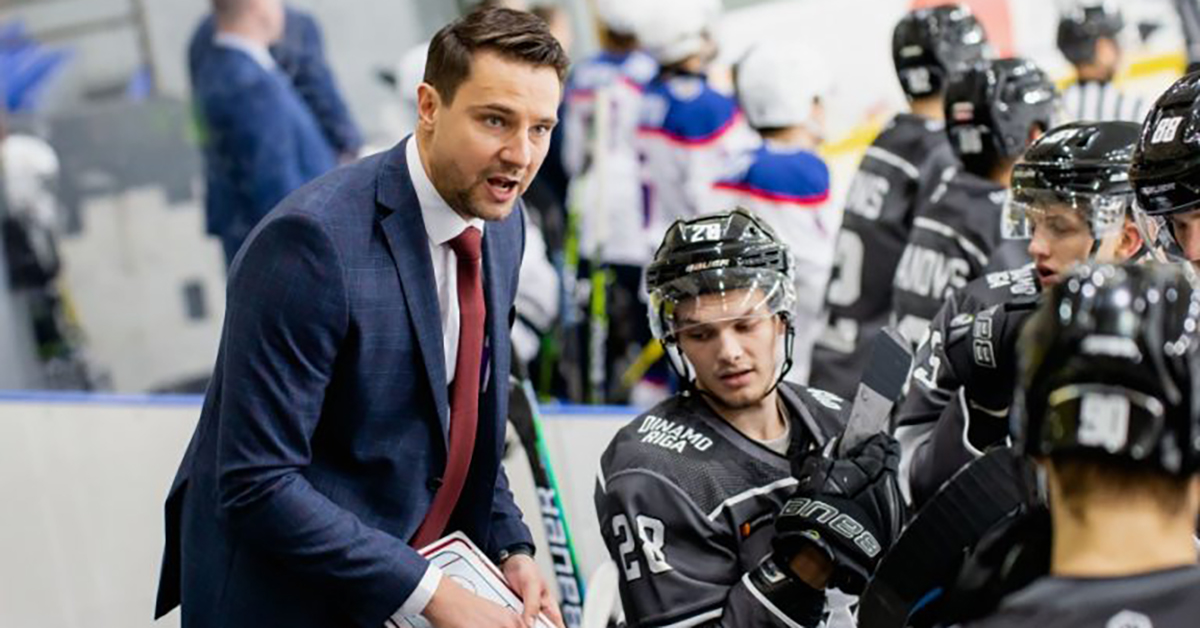
It gives them a fresh perspective on players, allows them to learn new tactics and bring their skill sets at different parts of the player’s career.
“Every coach has their own skill set and gets to add their own thing, so it’s great for the guys and girls because you’re not doing the same thing all the time,” Vilkoits (above) explains. “Every coach here has played hockey and has their own way of teaching, which makes it interesting year over year.”
In fact, at HS Riga and Latvia as a whole, it’s not as easy as just plucking a parent from the crowd to help out.
“The biggest difference between Latvia and other countries in Europe is that we have coaches from the very beginning. You must have a coach’s license, and those are not easy to get,” Sorokins goes on. “You don’t get a coach’s license by being on the ice for 50 or 100 hours. You have to study. I studied for four years in university for this role. I don’t know if that’s good or bad but it’s not that easy to just become a coach.”
The coaches will meet at various times throughout the year, teaching different systems but tactically adding things to help the players as they get older, hoping players were see and think the game differently.
“In Latvia, I think we are all different. We don’t have a particular style and I think that has been successful for us,” Sorokins points out. “I don’t think it would benefit us to all be under one system because we have a lot of players that bring a lot of different skills and we can’t be like a Sweden or Canada that is picky about the players they have.”
To Sorokins’ point, Latvia may have 200 kids in one age group in the entire country and at some point they have to make a National team out of that group.
That is where, at the beginning and all the way through their time at HS Riga, no one is brushed aside.
“The Federation understands development, they are doing a fantastic job,” Hartley compliments. “The pool of players in Latvia is far from Canada or the US so you can’t miss anyone. The big kid at 10 years old that’s a little clumsy on skates, with good coaching, good work outs and good practice can really surprise you at 16 years old.”
There are strength and conditioning coaches for all age groups at HS Riga, starting at even 9-years-old.
Vilkoits is one of them, that’s what he went to school for.
“Everyone here does such a great job. The younger team coaches have the job of making the kids fall in love with hockey and learn to skate and then we go from there,” he explains. “There are a lot of emotions, our best fans are our parents in the early years and then we move into a more pro style, where we teach them more systems, have more demands, stuff like that.”
================================
As I’m sure anyone reading this as seen, European hockey games just hit different.
Take it from a man who has won a Stanley Cup, won an AHL Championship and a QMJHL championship.
“It’s constant chanting and constant singing,” Hartley describes a Latvian home game “I remember we played a game against a Russian team my second year and the rink was packed. Russia had a powerhouse and we had many kids because it was early in training camp. I was with Jacques Cloutier and I remember the start of the 3rd period we were down 6-1 and it sounded like we were up 6-1 in the arena.”
Even when the world wasn’t allowed inside hockey arenas, they just waited beyond the doors.
“During COVID, my last World Championships, we beat Canada in the first game 2-0 and there were no fans in the arena but when we left the rink it was almost like a parade,” Hartley laughs. “They had drums and flags and it was wild. In an NHL rink, the fans are great and there’s a great atmosphere but over there they’ve got instruments and flags waving – there is always one guy with a massive flag who you think will have sore arms for a month after the game but he keeps waving and it’s just great.”
HS Riga is covered in posters and logos all over the school.
It’s a very patriotic place to be.
For most players growing up in Latvia, the NHL is always in their vision but the National Team is a very big deal.
When I asked Kristers Obuks what his goals were in hockey, he was quick to rhyme them off.
“I’m looking to get my education and, of course, I’m hoping to play hockey at the highest level, in the NHL, like every hockey player., but a real goal of mine would be to play for the Latvian National Team.”
Purins was no different.
“My dream is to be in the NHL and lift the Stanley Cup. It would be amazing,” he dreams. “I want to live my life as a professional hockey player and more than anything I want to represent my country.”
================================
Latvia continued to make an incredible run at the 2025 World Juniors, beating Germany 4-3 in overtime in their next game before falling 3-0 to Finland and 3-2 to Sweden – another two powerhouses of the tournament – in the quarterfinals.
It was the best result the country had seen at the World Juniors ever, but make note, the four best results ever at the World Juniors for the country have come in the last four years.
A far cry from the 2017 result that got them relegated from the tournament.
A total of 15 players from the team had gone through HS Riga at some point in their playing careers, including both goaltenders, six defensemen and seven forwards.
Many are spread across the globe now, playing in the USHL, CHL and different countries across Europe.
That’s what Sorokins gets his players ready for.
“At our age group, it’s not just fun hockey any more. These are players trying to make the jump,” Soroks outlines. “Up until this age, it was always preparing to take the next step as a junior player but they have to understand the next level after this is professional hockey. At that level you have to earn your position on the ice and you have to earn your contract and that is tough for some of them.”
Over the success of HS Riga and its ties to the National Team and the World Junior team, Vilkoits says it has been pretty amazing to see it all come together.
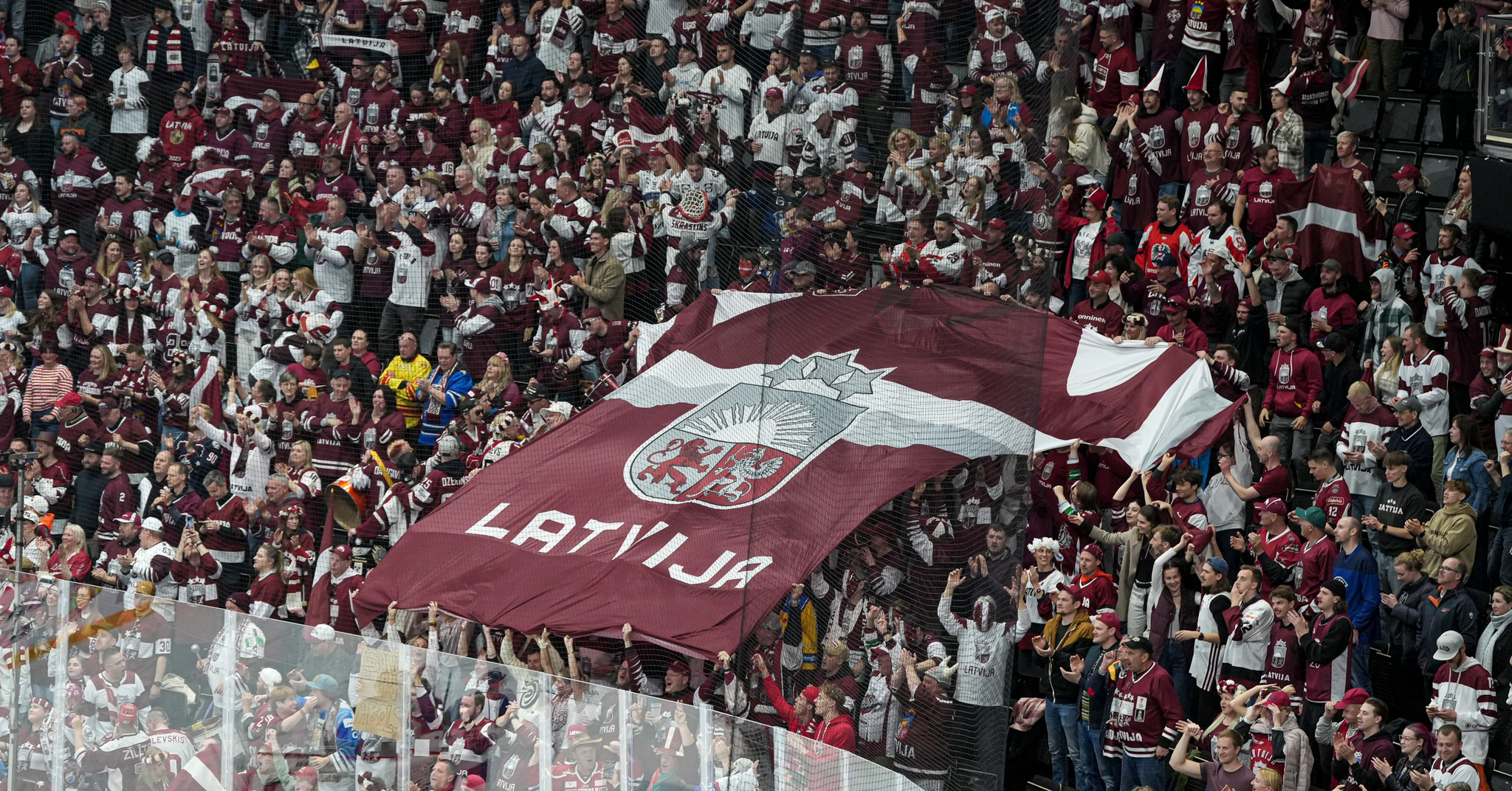
“Players here have now seen you can go through HS Riga and move on to the next level, whether that is junior hockey or pro hockey or in North America or in Latvia or other countries around the world. Our hockey traditions have been going on for a while now, the game brings out such awesome emotions you just want to watch it and support our native guys.”
It motivates the players, and also the coaches.
“My demands are the same for myself as they are for my team,” Vilkoits concludes. “I have to be prepared, I have to be ready to answer the bell and be ready to make decisions. I love that feeling. In that process, you get some wins, you get some losses but you can always learn from them.”
The development is what energizes Sorokins at the crucial age group he represents.
“My favourite part of coaching is when you’re trying to teach a different skill or tactic and you see it in a game. You see the players get it and you made a difference in something. If something works, that’s the best feeling for a coach. My win would be development. When I see that kind of development, I’m pretty happy – of course, as fast as possible.”
And for Bob Hartley, a Hawkesbury, Ontario native, Latvia will also hold a special place in his heart.
“For me, it was magical because I had a great experience and met some unbelievable people and unbelievable coaches, it was great.”
HS Riga was at the centre of one of the great Cinderella stories of the last decade.
This group finally understands, they belong on that stage with everyone else.

